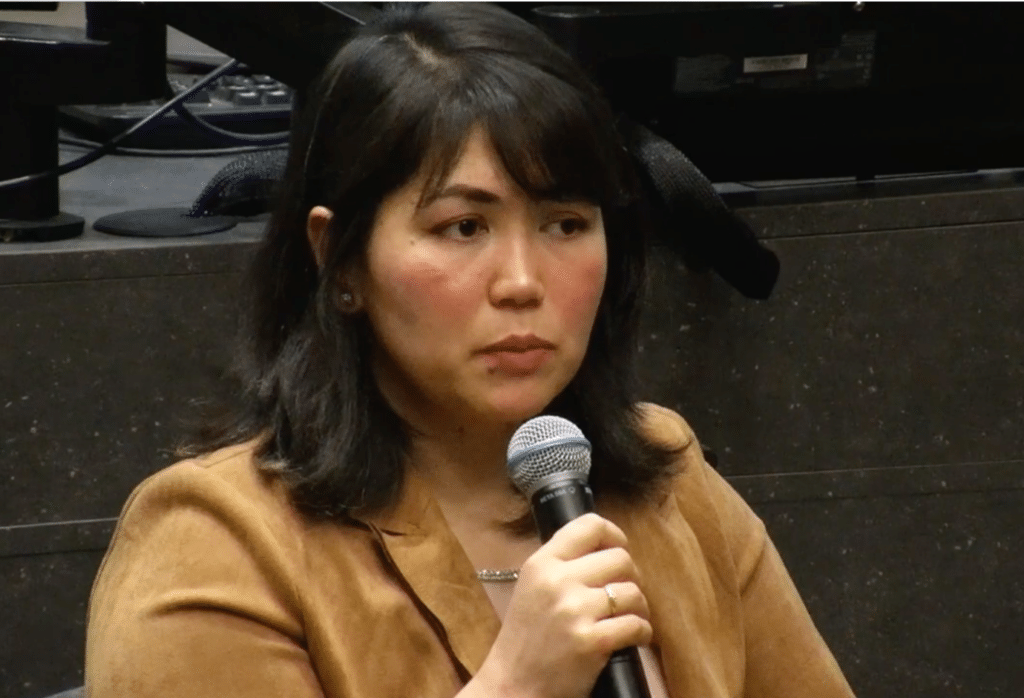Afghanistan’s first female Olympian is campaigning for her own country to be barred from the upcoming Paris Games. Friba Rezayee, a judo competitor at the 2004 Olympics in Athens, has called on the International Olympic Committee (IOC) to keep Afghanistan out of the Paris Olympics, citing the Taliban’s appalling human rights record.
In an interview with Reuters, the 38-year old athlete said a decision to allow Afghanistan to compete would be “very dangerous for the people.”
“Given tons and tons of evidence about the Taliban, about their brutal treatment of women and children, they are very dangerous,” Rezayee said.
Responding indirectly to her remarks, the IOC referred to a statement made by James Macleod, its Director of National Olympic Committee Relations and Olympic Solidarity, who said last month that the IOC was discussing ways to “reverse the current restrictions on access to sport for women and young girls in Afghanistan,” with Afghanistan’s National Olympic Committee (NOC) and other sport authorities.
Macleod argued that despite there being mixed options about Afghanistan’s NOC eligibility for the upcoming Games, it “doesn’t believe that isolation of the Afghan sporting community at this time is the right approach.”
Meanwhile, Rezayee, who was among the first two female Olympians from Afghanistan to compete at an Olympic Games two decades ago, believes that even if Afghanistan is banned, its female athletes should still be eligible to compete as part of the IOC Refugee Olympic Team.
According to the IOC, athletes are required to obtain a refugee status from the United Nations refugee agency (UNHCR) in order to be eligible for the IOC Refugee Olympic Team.
This is not the first time Rezayee has suggested a ban against Afghanistan. Last year, she told the magazine, Play the Game: “It’s very simple. Ban the Taliban-run Afghanistan for violating the Olympic Charter like the IOC did in the 1990s. There is precedent. And it’s the same Taliban.”
“What is the mystery behind the negotiations between the IOC and the Taliban?” she said. “Why are the Taliban not banned from the Olympic movement for violating Afghan sportswomen’s human rights? Why are the IOC negotiating with a group of terrorists?”
For the same publication, Minky Worden, director of global initiatives at Human Rights Watch, commented on Afghanistan’s involvement at the Asian Games in Hangzhou, saying, “That the Taliban allow a single female flag bearer at a major tournament, while simultaneously crushing the rights and hopes of millions of Afghan women athletes is more likely a cruel strategy by the Taliban to cover up systematic rights abuses than any mark of meaningful progress.”
Rezayee, who now lives in Vancouver and works as a sports, gender equality, and women’s rights activist, said that she had believed that her historic achievement in 2004 would advance the rights of women in her country.
“I actually believed that we would only progress from here,” she said this week.
“When I returned from Athens, [aged 18] I stayed in Afghanistan and I wanted to stay in Afghanistan. I continued my training because I saw the important changes it was making in every single girl’s life.”
“It feels like whatever I did to support women’s rights and gender equality back in 2004, it has been all undone by the IOC and by the Taliban and people who tolerate the Taliban.”
“I believe that my principles and the principles of human rights, women’s rights and women’s dignity are stronger than men with guns,” she added.
Rezayee has since obtained a bachelor’s degree in Political Science from the University of British Columbia, and launched the Afghan Women’s Employment Program at YWCA Metro Vancouver.
In 2021, she founded Women Leaders of Tomorrow, a Vancouver-based non-profit that offers scholarships and education programs for Afghan women. On its site, the organisation’s mission statement reads: “We strongly believe that education is the single most important thing that will improve life for women in Afghanistan.”


